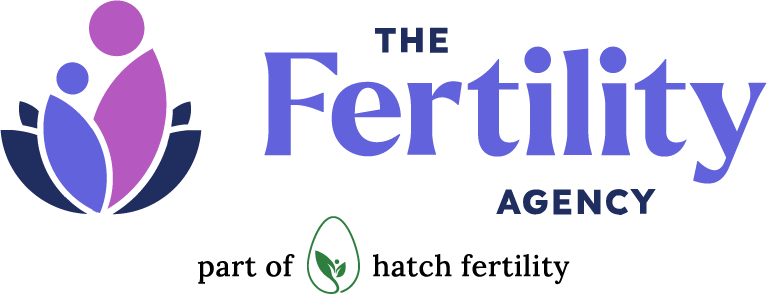If you had access to a window of your future family’s health, would you look through it?
Think of genetic testing as that window. When used for egg donation, it provides valuable insights into the health and genetic makeup of both egg donors and intended parents.
What is Genetic Testing?
Genetic testing is a medical process that analyzes a person’s DNA to find any changes or variations that could impact their health or the health of their future children. By looking at specific genes or chromosomes, genetic testing can provide information about the risk of inherited disorders, genetic conditions, and the likelihood of passing on certain traits to offspring.
Why is Genetic Testing Important for Egg Donation?
Testing donated eggs is important because it minimizes the risk of passing on inheritable disorders to a baby born via gestational surrogacy. In turn, this safeguards the health of future generations.
Overall, genetic testing for egg donation serves several important purposes:
Donor Screening
Genetic testing allows fertility clinics and egg donation agencies to screen potential egg donors for genetic disorders, chromosomal abnormalities, and hereditary conditions. This could include:
Genetic disorders:
- Cystic fibrosis
- Tay-sachs disease
- Sickle cell anemia
- Huntington’s disease
- Duchenne muscular dystrophy
Chromosomal abnormalities:
- Down syndrome (Trisomy 21)
- Turner syndrome (Monosomy X)
- Klinefelter syndrome (XXY)
- Edwards syndrome (Trisomy 18)
- Patau syndrome (Trisomy 13)
Hereditary conditions:
- Breast Cancer (BRCA1/BRCA2 mutations)
- Alzheimer’s disease
- Hemochromatosis
- Familial hypercholesterolemia
- Polycystic kidney disease
By identifying any underlying health concerns, genetic testing helps ensure the safety and well-being of the future embryos.
Risk Assessment
For intended parents, genetic testing provides valuable details about their own genetic profile and the risk of passing on inherited conditions to their future children. This knowledge helps them make wise decisions around family planning options and can influence the selection of an egg donor with a compatible genetic background.
Compatibility Matching
Genetic testing facilitates compatibility matching between egg donors and intended parents, taking into account factors such as blood type, HLA typing (for immune system compatibility), and genetic carrier status. By selecting a donor whose genetic profile aligns with theirs, intended parents can increase the likelihood of a successful pregnancy and the birth of a healthy child.
Types of Genetic Testing for Egg Donation
Several types of genetic testing are used for the egg donation process:
Carrier Screening
Carrier screening assesses a person’s risk of being a carrier for specific genetic disorders, such as cystic fibrosis, sickle cell disease, or Tay-Sachs disease. Egg donors and intended parents may have carrier screening to identify potential genetic risks that could be passed onto offspring.
Chromosomal Analysis
Also known as karyotyping, chromosomal analysis looks at the structure and number of chromosomes in a cell. This type of testing helps identify chromosomal abnormalities, such as Down syndrome (trisomy 21), Turner syndrome (monosomy X), or Klinefelter syndrome (XXY).
Preimplantation Genetic Testing (PGT)
Preimplantation genetic testing involves analyzing embryos created through in vitro fertilization (IVF) for genetic abnormalities before implantation in the uterus. PGT can identify chromosomal abnormalities, single gene disorders, or numerical abnormalities, helping to select embryos with the highest likelihood of success.
Benefits of Genetic Testing for Egg Donation
Genetic testing offers several benefits for both egg donors and intended parents:
- Enhanced safety: By finding potential health risks, genetic testing helps ensure the safety and well-being of donors, recipients, and future children.
- Informed decision-making: Genetic testing provides valuable information that empowers individuals and couples to make informed choices about their fertility journey.
- Improved pregnancy outcomes: By selecting genetically compatible donors and embryos, intended parents can optimize the chances of a successful pregnancy and the birth of a healthy baby.
As you learn more about genetic testing used for egg donation, remember that knowledge is power. When you understand the role of genetic testing and its impact on the fertility journey, you are empowered to make decisions that align with your goals and values. Embrace the journey with confidence, knowing that each step brings you closer to realizing your dreams of parenthood.
Surrogacy and Egg Donor Services
Since 2004, The Fertility Agency has helped bring over 1100+ babies into the world. We work with all intended parents, surrogates, and egg donors no matter their sexual preference, relationship status, ethnicity, location, etc. Our personal experiences and years of expertise provide us with the perfect balance of business and passion. Contact us for more information.

